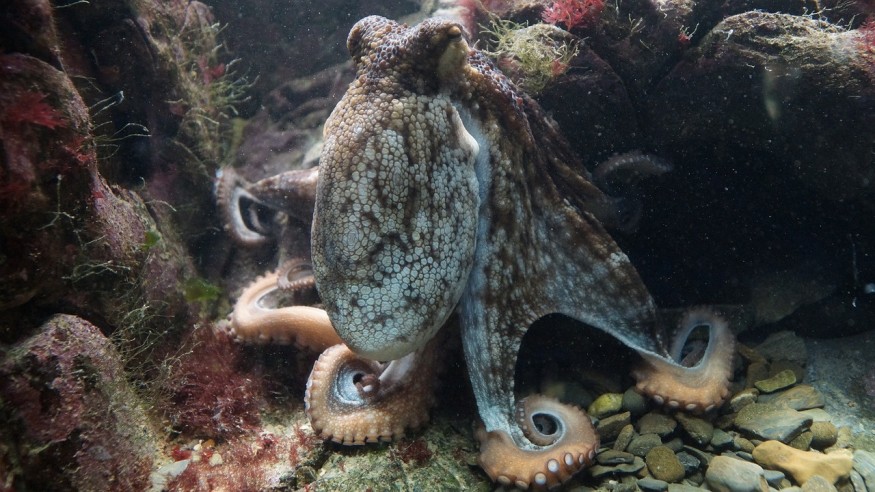
Scientists were able to film an octopus in a New York laboratory. Strangely, the creature exhibited odd behaviors that may have been due to nightmares.
Do Octopuses Actually Get Nightmares?
According to Live Science, the scientists observed the creature for a month. They saw the octopus thrashing around and jolting out of its slumber. Live Science notes that the creature's behavior seemed to indicate a sleep disorder of some sort.
All Thats Interesting reports that the footage was captured using 24-hour cameras. It demonstrates a Brazilian reef male octopus, dubbed Costello, dozing in its shelter. The skin color of Costello was shown to change, which is a behavior that scientists think is related to dreaming. Similar to how dogs twitch while sleeping, there is a possibility that octopuses move around and change color to mirror their dreams.
In two incidents, the creature expelled black ink into its tank. This mechanism is a common defense against predators. Postdoctoral researcher Eric Angel Ramos from the University of Vermont, who aided with the footage filming, notes that the sight was bizarre, as the creature seemed to be in pain. For a moment, Costello seemed to be suffering, and then he just went up and proceeded with his day normally.
Findings are still on the preprint server, bioRxiv, and have yet to undergo peer review. Nevertheless, the researchers think that some of these behaviors are what these creatures exhibit when they come across a predator in wild settings. This led the authors to speculate that the creature could be reacting to episodic memory of some sort or dealing with a sleep disorder.
Though the behavior is notably odd, the researchers cautioned against speedy interpretations of it. No definite conclusions can be drawn based on the observations.
Not Much Is Known About the Neuroscience of Octopus Sleep
Researchers have been digging deeper into octopus sleep. In fact, in 2021, researchers were able to release evidence of animals having two sleep stages. This consists of a quiet and active sleep stage, which may be similar to human sleep fluctuations from REM to non-REM sleep.
However, another expert, who did not participate in the study, cautioned against inferring the actions of the creature as dream-related. Comparative neurobiologist Robyn Crook from San Francisco State University explains that not much is known regarding cephalopod sleep neuroscience to know if they actually dream or have nightmares. Crook also notes that if octopuses indeed dream, they may do so in a way that is entirely different from that of humans.
Hence, despite how interesting the footage may seem, there are still high chances that another phenomenon could have spurred it, Crook noted. For one, the creature could have simply gotten startled by something, or it could have been exhibiting senescence signs. Senescence refers to the stage before an octopus dies where its body starts breaking down.
Interestingly, the specific octopus species of Costello is known to live for roughly 12 to 18 months. The creature also died shortly after such incidents. Ramos explains that senescence is also a possible factor that they did not discount.
Ramos adds the possibility of the behavior being off due to how several lab octopuses get euthanized prior to senescence. Moreover, most labs do not keep the creatures under their radar 24/7. This means that other specialists could have simply missed the chance to observe behaviors that are similar.
RELATED ARTICLE : Did Octopus Come From Outer Space? New Study Claims Meteor Impacts Brought These Eight-Armed Creatures to Earth
Check out more news and information on Animals in Science Times.
© 2026 ScienceTimes.com All rights reserved. Do not reproduce without permission. The window to the world of Science Times.











